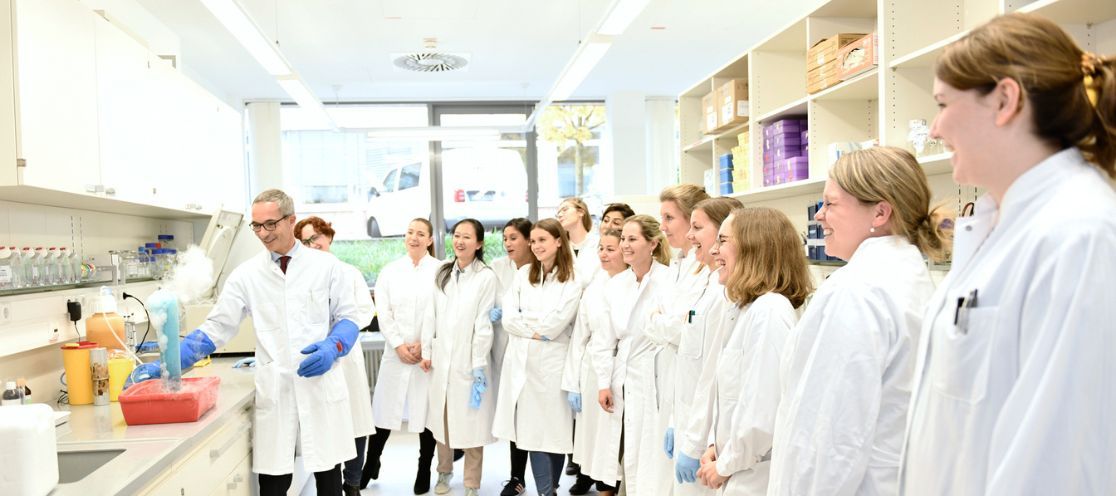The immune system plays an important role in oncology. The importance of immunology for oncology has increased significantly in recent years. This is reflected, among other things, in the numerous immunotherapies that have already been approved and those that are still in various research pipelines. In Tübingen, research into onco-immunology takes up a lot of space, both in basic research and clinical-translational research.
The Faculty of Medicine is currently working on several projects in the field of checkpoint blockade inhibitors and T-cell-based therapies. Tübingen has years of experience in the development of third-generation recombinant antibodies, including their translational implementation from the laboratory to the clinic. Research is being carried out together with the German Consortium for Cancer Research, which has a location at the University Hospital.
Another central research question in our onco-immunology is the interactions between the microbiome and the immune system - and how this in turn affects cancer risk, cancer formation and cancer development. Based on the findings we have gained, we are looking for oncology therapy options that focus on the interaction between the microbiome and the immune system. Our goal is to develop tailor-made precision medicine approaches and make them clinically usable. This involves, among other things, individually changing and influencing the composition of the microbiome in oncology patients with a therapeutic effect.


